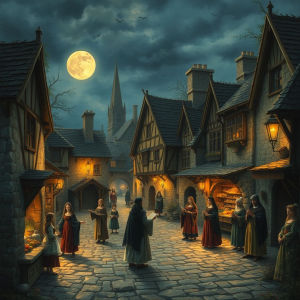
Folklore and history are two interconnected disciplines that have been fascination humans for centuries. While history focuses on the factual events and dates of the past, folklore delves into the myths, legends, and stories that have been passed down through generations. In this article, we will explore the relationship between folklore and history, and how they can be used to gain a deeper understanding of the past.
The Origins of Folklore
Folklore has its roots in the oral traditions of ancient cultures. Before the advent of written records, stories, myths, and legends were passed down through word of mouth, often through songs, poems, and dramas. These stories not only entertained but also served as a way to preserve cultural values, traditions, and histories. Folklore was a way for ancient cultures to make sense of the world around them, to explain natural phenomena, and to provide moral guidance.
The Connection to History
History and folklore are intertwined in many ways. Historical events often influenced the development of folklore, and folklore, in turn, can provide valuable insights into historical events. For example, the legend of King Arthur and the Knights of the Round Table is rooted in historical events, but has been embellished and mythologized over time. Similarly, the story of the Trojan War, as told in Homer’s Iliad, is based on historical events, but has been passed down through folklore and literature.
Examples of Folklore and History
There are many examples of folklore and history from around the world. In African folklore, the story of Anansi the spider is a classic example of how folklore can be used to teach moral lessons and preserve cultural values. In European folklore, the story of Cinderella is a timeless tale that has been passed down through generations, with variations and adaptations in different cultures. In Asian folklore, the legend of the Monkey King is a famous example of how folklore can be used to explain natural phenomena and provide moral guidance.
The Importance of Preserving Folklore and History
Preserving folklore and history is crucial for understanding our cultural heritage and the development of human societies. By studying folklore and history, we can gain insights into the values, traditions, and beliefs of our ancestors, and how they shaped the world we live in today. Moreover, folklore and history can provide valuable lessons for the present and future, serving as a reminder of the importance of cultural diversity, tolerance, and understanding.
Conclusion
In conclusion, folklore and history are two interconnected disciplines that offer a unique window into the past. By exploring the myths, legends, and stories of our ancestors, we can gain a deeper understanding of the historical events and cultural values that have shaped human societies. As we continue to navigate the complexities of the modern world, it is essential that we preserve and appreciate our cultural heritage, including the rich and diverse traditions of folklore and history.
